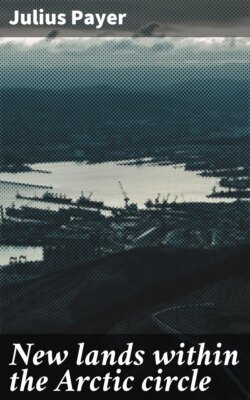Читать книгу New lands within the Arctic circle - Julius Payer - Страница 9
На сайте Литреса книга снята с продажи.
Оглавление9. Be this as it may, the present English North-Pole Expedition will essentially contribute to solve the question, whether the Pole can be reached by the route through Upper Smith’s Sound. This, according to the views of almost all Polar navigators, holds out the greatest chances for further advance by sea. Should this expedition, equipped in so effective a manner, and sent out by a nation of such great experience, not come nearer to the goal, or, if nearer, only through sledging—which may very probably be the case—the conviction will then be strengthened, that all efforts to reach the Pole by navigation in the Frozen Ocean are hopeless, and witness only to the glorious persistency of human endeavour.
10. But until aërial navigation to the Pole shall be attempted, it would be advisable to follow the example of the Swedes, and, in the service of Natural History and Geography, content ourselves with the exploration of those Arctic lands of which, up to the present moment, we know only the coast-line, or which, situated on the outermost verge of our Polar charts, are still untrodden by man; we mean specially Gillis’, Grinnell’s, Wrangel’s Land, and above all, the interior of Greenland. The Polar question, hitherto regarded chiefly as a geographical problem, would thus, for a considerable time, be taken up in the interest of Natural Science. Lieutenant Weyprecht, after dwelling on the predominance of exploration in Polar expeditions, expresses a wish, that the great civilized nations would unite in contemporaneous Arctic expeditions for magnetical, electrical, and meteorological investigations: “In order to attain decisive scientific results, a number of expeditions should be sent to different places in the Arctic regions to make observations, at the same time, with similar instruments, and in accordance with similar instructions.” They who think such results too insignificant for the energies and sacrifices which are expended to achieve them, and who would rather that such efforts should be transferred to those still unknown regions of the earth, which may become the dwelling-places of man, will, of course, give their veto against the further agitation of the Arctic question.
